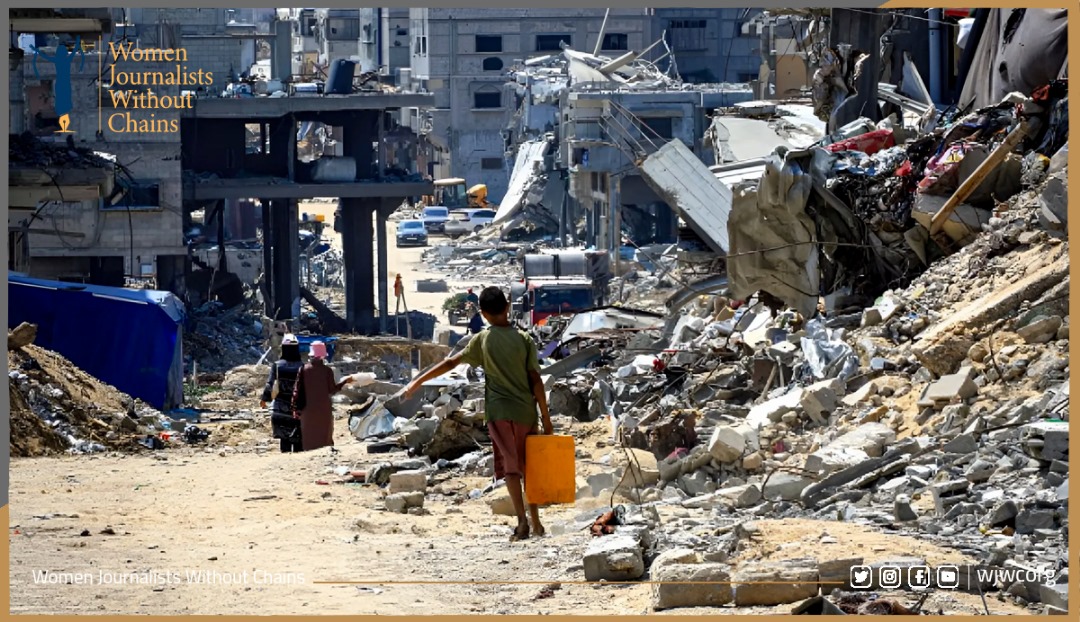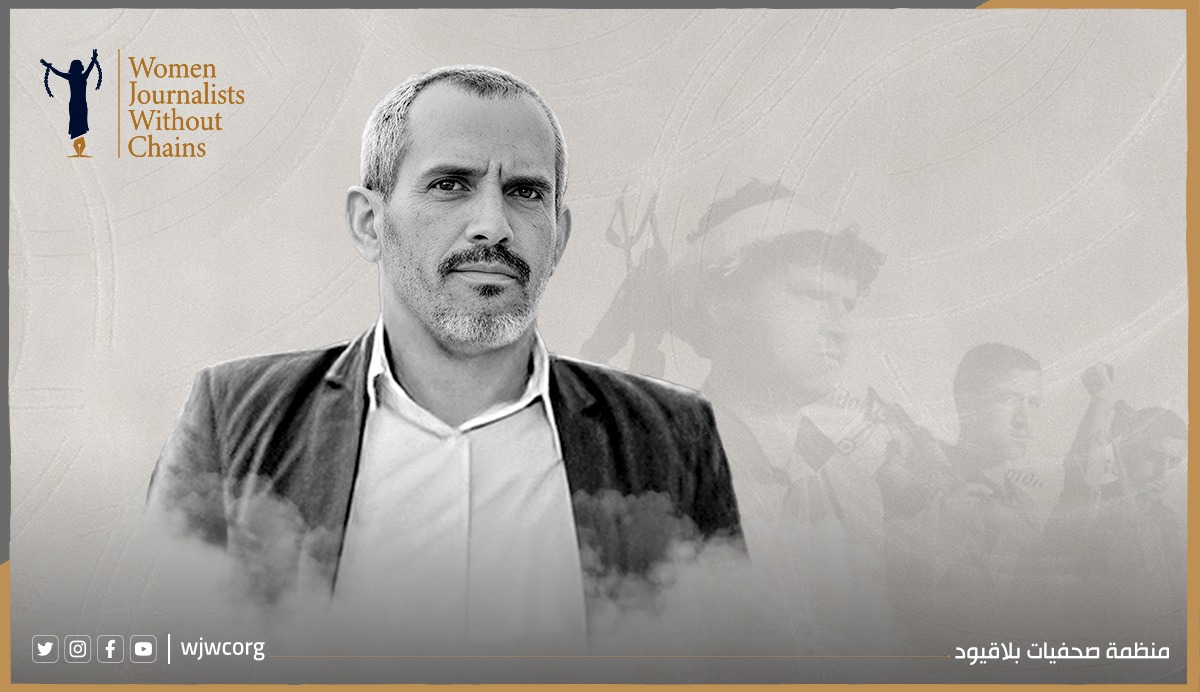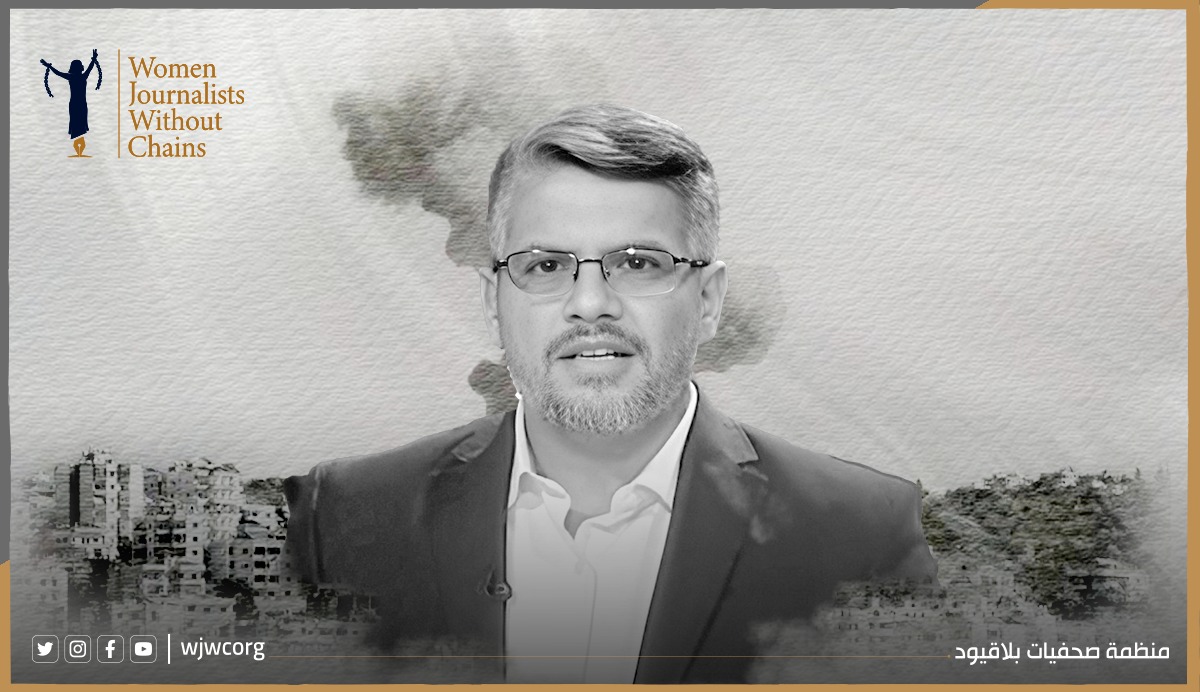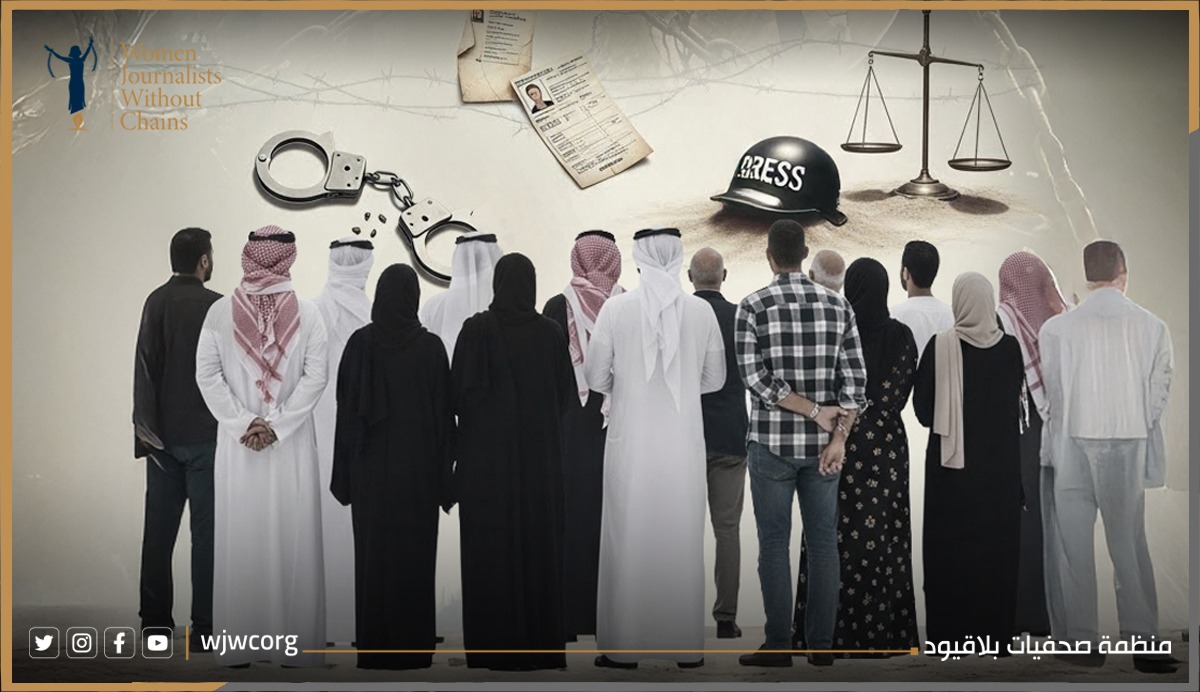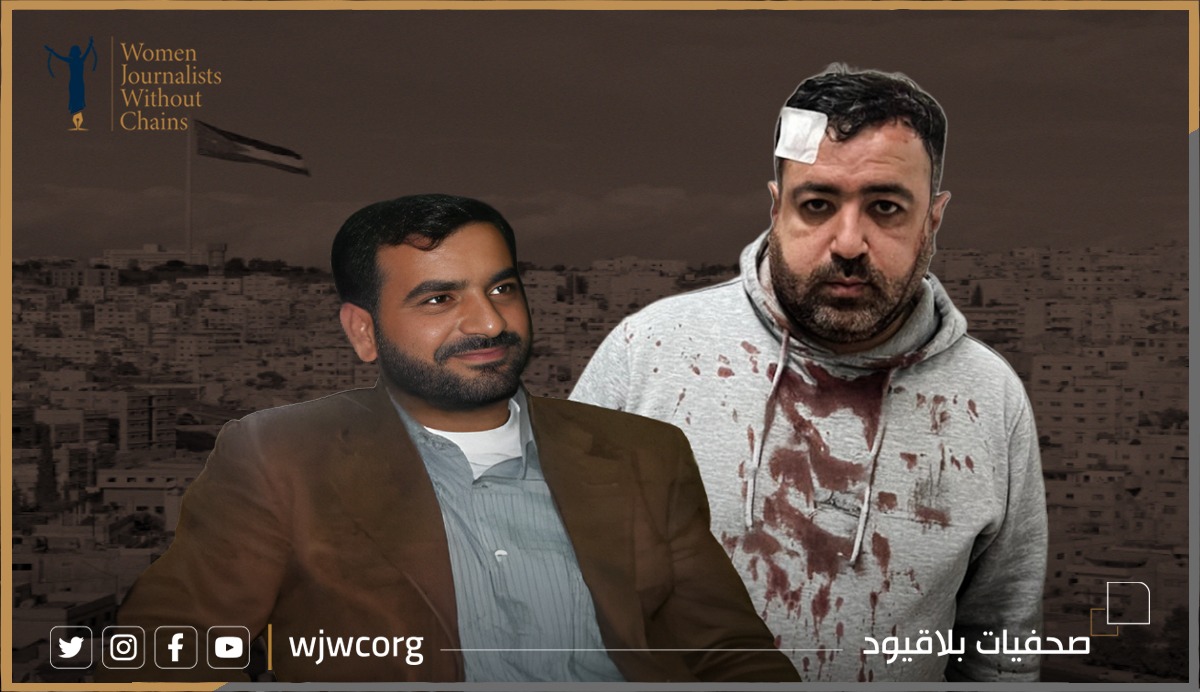In a stark warning to the international community, Women Journalists Without Chains (WJWC) has denounced the ongoing Israeli policy of using water as a weapon of war in the Gaza Strip.
The organization described the deliberate destruction of Gaza’s water infrastructure and the targeting of civilians in aid queues as clear evidence of a systematic campaign aimed at exterminating the population—amounting to war crimes, crimes against humanity, and acts of genocide under international law.
The latest atrocity occurred on July 13, when Israeli forces bombed a line of Palestinians gathered at a charitable water distribution point. At least 10 civilians, including 7 children, were killed while waiting for clean drinking water—an essential resource that has become nearly impossible to access after 21 months of siege and bombardment.
According to the Palestinian Ministry of Health in Gaza, the number of Palestinians killed by Israeli forces since October 7, 2023, has risen to 58,497—individuals whose bodies have been recovered and reached hospitals. Thousands more are presumed dead, trapped under the rubble of bombed buildings or lying in inaccessible areas where emergency services remain unable to operate. From May 27 to July 15 alone, at least 844 Palestinians were killed while queuing for food and aid, the Ministry said—an unmistakable indicator that humanitarian spaces and basic services are being targeted systematically.
A War Fought Through Dehydration and Disease
WJWC emphasized that Israel’s attacks on water and sanitation infrastructure form a central pillar of its military strategy in Gaza. Since October 2023, water access in the territory has collapsed, with the daily per capita water supply dropping from 86 liters to as little as 3 to 12 liters—and in some areas, to less than one liter per day. According to United Nations data, only 10% of Gaza’s residents now have any access to drinking water.
The destruction of infrastructure, compounded by Israel’s blockade on humanitarian aid and refusal to allow repairs, has forced displaced Palestinians to consume untreated and polluted water. As a result, waterborne diseases have spread rapidly. Hundreds of thousands of cases of acute watery diarrhea have been recorded, along with tens of thousands of hepatitis A infections, widespread skin diseases, and respiratory illnesses affecting more than one million people. Polio virus has also been detected in sewage water running through overcrowded tent camps.
“The use of thirst and disease as tools of war is not only inhumane—it is criminal,” WJWC stated. “The deliberate denial of water, sanitation, and humanitarian access is designed to break civilian resilience, force mass displacement, and permanently depopulate Gaza. These are the hallmarks of genocide.”
Systematic Elimination of Gaza’s Water Sources
In a detailed technical assessment, WJWC documented the targeted dismantling of Gaza’s three main water sources: the coastal aquifer, desalination plants, and the Israeli Mekorot water supply pipelines. In each case, Israeli actions indicate a premeditated effort to cripple life-sustaining systems and accelerate public health collapse.
1. Groundwater Aquifer: Crippling the Lifeline
The Gaza Strip depends on its coastal groundwater aquifer for approximately 85% of its water supply, sourced from nearly 300 public wells. Despite longstanding concerns—97% of this water was already deemed unfit for consumption due to contamination and salinity—Israel has not only denied alternative access but directly attacked this critical lifeline.
Since October 2023, over 80% of public wells have been destroyed or rendered inoperative, including 246 water production wells and 40 major water storage tanks. The aquifer’s recharge has also been deliberately hindered by Israeli-built dams and underground water traps along the border.
2. Desalination Plants: Systematic Shutdown of Drinking Water
Gaza’s desalination network—both public and private—once served as a vital alternative, especially in central and southern areas. However, Israeli bombardments and energy blockades have decimated the system.
WJWC reports that 85 desalination units have been damaged or destroyed since the war began. On March 9, 2025, Israeli Energy Minister Eli Cohen ordered the complete cessation of power supply to Gaza, cutting electricity to the central desalination plant in Deir al-Balah. Water production there plummeted from 18,000 cubic meters per day to just 3,000, leaving over 600,000 people without access to drinking water.
3. Mekorot Pipelines: Severing Israeli-Supplied Lifelines
Under the Oslo Accords, Israel’s Mekorot Water Company supplied Gaza with around 21 million cubic meters of potable water annually, distributed via three pipelines running to the northern, central, and southern areas of the Strip. These lines served roughly 70% of Gaza’s population.
Each of these pipelines has now been disabled. On April 4, 2025, Israeli forces targeted the primary line east of Gaza City, which served the majority of residents. Similar attacks earlier in the conflict disabled the central region’s pipeline, cutting water access to another 300,000 civilians. Israel has since refused to allow repair teams to access or restore these essential supply lines.
4. Sewage and Disease: Weaponizing Waste
The collapse of water systems has been compounded by the deliberate destruction of Gaza’s sewage infrastructure. Israeli forces have:
· Disabled six wastewater treatment plants
· Destroyed more than 1,600 kilometers of water and sewage pipelines
· Shut down 70 pump stations responsible for treating 130,000 cubic meters of wastewater daily
Untreated sewage now floods displacement camps, schools, and shelters—creating breeding grounds for disease. In the context of a collapsed health system, this deliberate strategy of weaponizing filth amounts to biological warfare against civilians.
Legal Classification: Water Deprivation as a Tool of Genocide
Women Journalists Without Chains stresses that the intentional deprivation of water and sanitation, particularly when combined with direct targeting of aid distribution points, constitutes a grave violation of international law, including:
· The Fourth Geneva Convention (Protection of Civilian Persons in Time of War)
· The Rome Statute of the International Criminal Court, which classifies mass deprivation and deliberate exposure to disease as war crimes and crimes against humanity
· The 2004 advisory opinion of the International Court of Justice on the legal obligations of occupying powers
“These crimes are not the byproducts of war—they are its very method,” WJWC said. “Israel’s strategy of using deprivation to displace, sicken, and kill civilians reflects a genocidal intent that demands urgent international accountability.”
WJWC’s Calls to Action
In light of these findings, Women Journalists Without Chains issues the following urgent demands to the international community:
· Immediate and unconditional cessation of attacks on Gaza’s water and sanitation infrastructure.
· Guaranteed entry of humanitarian aid, including water purification materials, equipment to repair pipelines and desalination systems, and essential maintenance supplies.
· Access for technical and humanitarian teams to assess and repair the damaged networks and mitigate disease outbreaks.
· Strict enforcement of International Court of Justice rulings related to Israel’s obligations under international humanitarian law.
· Expansion of international investigations to include water-related war crimes and environmental crimes committed in Gaza.
· Prosecution of Israeli officials responsible for planning, executing, or authorizing these acts under international criminal jurisdiction, including the principle of universal jurisdiction.
“The international community must act now to protect the right to water, the right to health, and above all, the right to life,” WJWC concluded. “Inaction is complicity. Silence is permission. The law must prevail over impunity.”

 En
En  Ar
Ar 